Sorry...Your search - sound as verb - did not match any pages.
Make sure that all words are spelled correctly.
- Try different words.
- Try more general words.
- Try fewer words.
If you wish to know more about ITTT TEFL and TESOL Courses, please check this out!
why choose ittt?

SINCE 1998
ITTT is a long-established and respected course provider that has been offering high-quality training courses since 1998;

EXPERIENCED STAFF
All our staff members have experience of living abroad and have taught English in countries right across the world;

FOR ALL FLUENT ENGLISH SPEAKERS
Our training courses are open to all fluent English speakers regardless of their nationality;

NO DEGREE REQUIRED, NO AGE LIMIT
At ITTT we believe in providing opportunities for all fluent English speakers, which is why no previous teaching experience or degree is required and we have no upper age limits for any of our courses;

ALL PAYMENT METHODS ALLOWED
Course payments are quick and convenient as we accept a wide range of options, including credit/debit card, PayPal, Western Union, WeChat and bank transfer;

NO HIDDEN COSTS
Unlike some course providers, there are no hidden costs with any of our online TEFL/TESOL courses. The course fee shown will cover everything you need, including all the necessary materials and your certification;

DISCOUNTS
At ITTT we regularly have special deals available that include free additional courses and discounts;
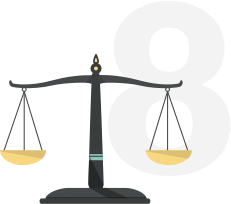
VALUE FOR MONEY
At ITTT we believe in offering training courses to suit all budgets and we are sure that our TEFL/TESOL certifications offer the very best value for money on the market;

24/7 CUSTOMER CARE
As an international company we are able to provide round-the-clock assistance with course sales and general pre-course enquiries via a range of methods, such as our contact form, whatsapp, Facebook Messenger, or telephone;
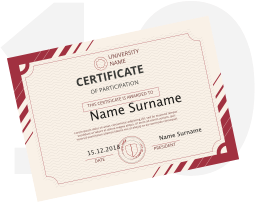
EMBOSSED CERTIFICATE
Every ITTT course graduate receives a high-quality embossed certificate with a personalised certificate number that can be verified by employers and governments directly through our websites;

CERTIFICATE NOTARIZATION
We provide several certificate notarization options for ITTT certificates;

PDF COPY OF YOUR CERTIFICATE
A hard copy certificate is sent to you by registered postal mail but you can receive an electronic copy as well upon request.

DHL SHIPMENT
You can have your embossed certificate shipped to you via DHL at cost.

WORLDWIDE RECOGNITION
The TEFL/TESOL certificates that are awarded upon successful completion of our courses are welcomed by employers in countries across the world;

LIFETIME JOB ASSISTANCE
All our course graduates receive access to a wealth of post-course assistance that includes teaching materials, lesson plans and lifetime job assistance;

RECRUITMENT COMPANIES
ITTT has developed partnerships with many of the leading recruitment companies in the EFL industry in order to offer our graduates access to the very best teaching jobs worldwide;

BLOG
At ITTT we stay in touch with our graduates way beyond their course completion and many of them choose to share their teaching experience via our popular online blog;

TEACHING VIDEOS
ITTT provides a huge range of free videos on our YouTube channel that cover all manner of subjects, from course advice and reviews to classroom tips and teaching locations;

FACEBOOK
Our Facebook community is made up of all nationalities, ages, and backgrounds, so it provides the perfect environment for finding support, guidance and advice from like minded trainees and graduates;

SOCIAL MEDIA PRESENCE
Our social media presence is one of the largest and most followed within the TEFL/TESOL world. ITTT is present on: Facebook, Instagram, Pinterest, Youtube, Vkontakte, Quora;
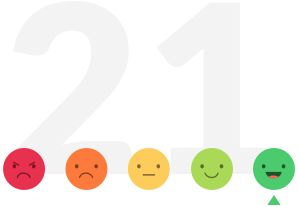
EXCELLENT REVIEWS
At ITTT we are proud to be one of the highest rated TEFL/TESOL course providers, with top ratings from our graduates on a range of third party sites including Facebook, GoAbroad.com, GoOverseas.com, reviews.co.uk, teflreviews.com, and Trustpilot;

AWARDS
ITTT has received widespread recognition for the quality of our products and services via annual TEFL/TESOL industry awards presented by respected organizations such as GoAbroad.com and GoOverseas.com;

COURSES & MATERIALS
In order to maintain our position as the market leader in TEFL/TESOL certification, we continuously develop our courses and materials;

FREE E-GUIDE & E-BROCHURE
If you want to find out more about ITTT, the courses we offer and the general world of teaching English abroad, we have an e-guide and brochure that you can download for free;

AFFILIATE PROGRAM
At ITTT we offer you the chance to earn extra income by signing up for our Partnership Program. As a partner you can earn a commission on every trainee you refer to us via your website, blog, or social media community;

ISSUE YOUR OWN CERTIFICATES
ITTT graduates can issue a certificate of completion to their students who have finished a series of English language lessons with them;
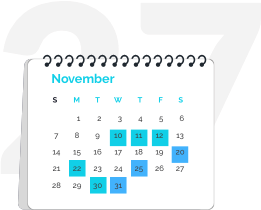
JOB POSTINGS
ITTT websites and social media pages are updated on a daily basis with job postings available in every country;

FROM STUDYING TO TEACHING
At ITTT we are committed to guiding you through your studies, from your initial application right through to finding a suitable teaching position;
in-class & combined courses
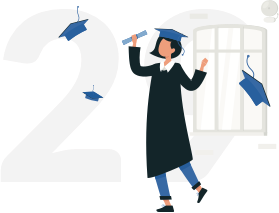
UNIVERSITY-ACCREDITED COURSES
All in-class TEFL/TESOL courses purchased through ITTT are US university-accredited;

DOZENS OF TRAINING LOCATIONS WORLDWIDE
Our in-class TEFL/TESOL courses are available in dozens of stunning locations all over the world, from exotic destinations such as Phuket, Thailand and Manuel Antonio, Costa Rica to major world cities including Barcelona, Paris and Rome;

ACCOMMODATION FOR ANY BUDGET
We are happy to recommend a range of accommodation options to suit most budgets at all of our in-class TEFL/TESOL course locations;

TEACHING PRACTICE
Our in-class TEFL/TESOL courses include several hours of invaluable teaching practice with genuine EFL students in an authentic classroom environment;

EXTRA SERVICES
Many of our popular in-class TEFL/TESOL course locations include a range of extra services, such as free airport pickups, a welcome dinner where you can get to know your trainers and fellow students, and even group excursions to local attractions;

COMBINED COURSES
The in-class component of the combined TEFL/TESOL course is available in several great locations, including Bangkok, Barcelona, New York, Paris, and Phuket;

SHORT (5-DAY) COURSES
If you are in a hurry to be TEFL/TESOL certified, but still want the benefit of face to face instruction, we offer a convenient 5-day combined course in multiple locations across North America;
online courses

SPECIALIZED COURSES
We aim to provide the widest range of online TEFL/TESOL certification courses on the market, including specialized courses, an advanced diploma and a range of course packages. ITTT’s specialized courses include:
- CTBE: Certificate for Teaching Business English
- CETYL: Certificate for Teaching English to Young Learners
- CTEO: Certificate for Teaching English Online
- CTPR: Certificate of Teaching Practice Recognition
- CTP: 150-hour Certification course with Teaching Practice
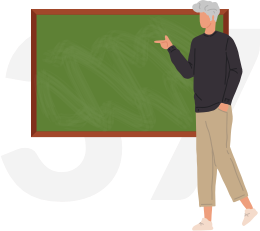
QUALIFIED, EXPERIENCED TUTORS
Our course tutors are all highly experienced and qualified EFL teachers who have taught in a variety of different environments;

STUDY AT YOUR OWN PACE
We provide a great deal of flexibility with our online TEFL/TESOL courses by allowing you to set your own study schedule and giving you up to six months to complete all the course units;

COURSE ACCREDITATION
At ITTT our courses are accredited by prominent and highly respected institutions in the EFL world, including the Online TESOL and TEFL Standards Agency (OTTSA);

EASY-TO-STUDY
Our online certification courses are accessed via a convenient, personalized dashboard that makes it easy to navigate your way through your studies;

COURSE TOPICS
The theoretical sections of our courses cover a wide range of English grammar topics, classroom management skills, and the most up-to-date teaching methodologies;

PC, TABLET, SMARTPHONE
ITTT’s wide range of quality online courses can be accessed via any device you prefer, whether it is a PC, laptop, tablet, or smartphone. The study material can be accessed both online and offline (ITTT’s teaching videos can also be downloaded);
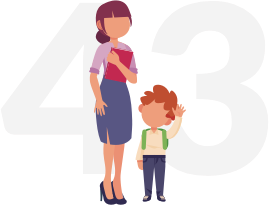
PRACTICAL CONTENT
Although our in-class TEFL/TESOL courses are inevitably more practical in nature, our online courses are also designed to cover as much practical content as possible;

NO GEO LIMITS
Our range of flexible and convenient online courses can be taken from anywhere in the world with only an internet connection required. You can work through the course at your own pace, as and when you want.

NO FINAL EXAM, NO PRESSURE
As all our online TEFL/TESOL courses include ongoing assessment as you work through the materials there is no pressurized end-of-course exam to worry about;



